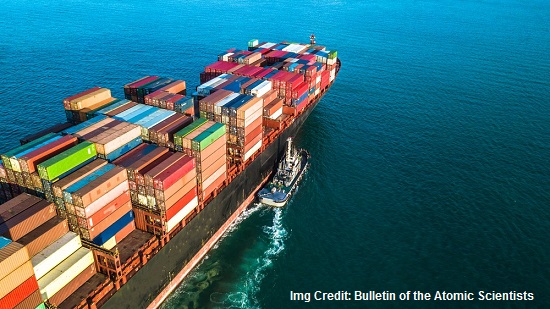South Korea''s Shipping Industry Set to Leverage AI Technology for Enhanced Efficiency

In a move aimed at revolutionizing the
shipping industry, South Korea's maritime sector is preparing to embrace
artificial intelligence (AI) technology to boost efficiency and streamline
operations. Industry leaders have recognized the potential of AI to transform
the traditional shipping landscape, paving the way for a new era of
digitization and automation. South Korea, renowned for its shipbuilding
prowess, is now determined to harness the power of AI to stay at the forefront
of global maritime trade. By incorporating AI algorithms and machine learning
capabilities into various aspects of shipping operations, the country aims to
improve vessel scheduling, optimize routes, enhance safety measures, and reduce
environmental impact.
The integration of AI technology in
shipping operations will allow for real-time data analysis, enabling more
accurate decision-making and proactive maintenance strategies. This advancement
will significantly reduce the risks associated with unforeseen breakdowns and
unplanned downtime, ultimately leading to substantial cost savings for shipping
companies. Furthermore, AI-powered predictive analytics will assist in
determining the most efficient shipping routes by taking into account factors
such as weather conditions, fuel consumption, and cargo volume. This
optimization will result in shorter transit times, reduced fuel consumption,
and lower greenhouse gas emissions, aligning with the global push for greener
shipping practices.
The South Korean government is actively
supporting this technological shift by providing incentives to shipping
companies and investing in research and development initiatives. The aim is to
foster innovation and collaboration among industry players, leading to the
creation of cutting-edge AI solutions tailored to the unique needs of the
maritime sector. Several South Korean shipping giants have already initiated
pilot projects to test the effectiveness of AI technology in their operations.
These projects involve equipping vessels with advanced sensors, data collection
systems, and onboard AI algorithms to monitor and optimize various parameters,
including fuel efficiency, maintenance schedules, and cargo handling.
Industry experts are optimistic about
the potential benefits of AI integration in shipping. By embracing AI
technology, South Korea's shipping industry can expect improved operational
efficiency, reduced costs, and enhanced safety measures, giving it a competitive
edge in the global maritime market. As the world increasingly relies on
shipping for global trade, South Korea's proactive adoption of AI technology
demonstrates its commitment to staying ahead of the curve. With a strong focus
on sustainability and efficiency, the nation's shipping industry is poised to
lead the way in the digital transformation of maritime trade, ensuring a
prosperous future for itself and the global shipping community.